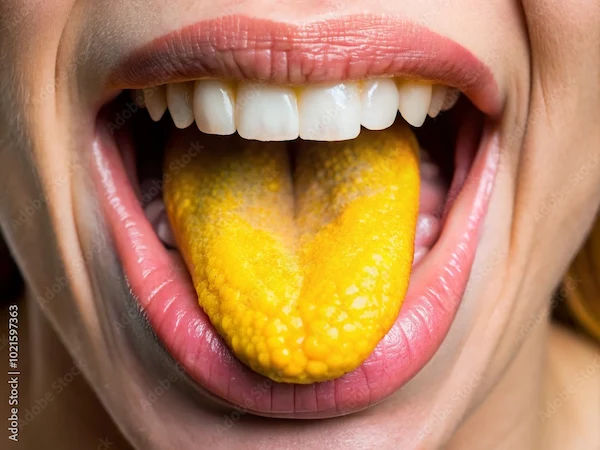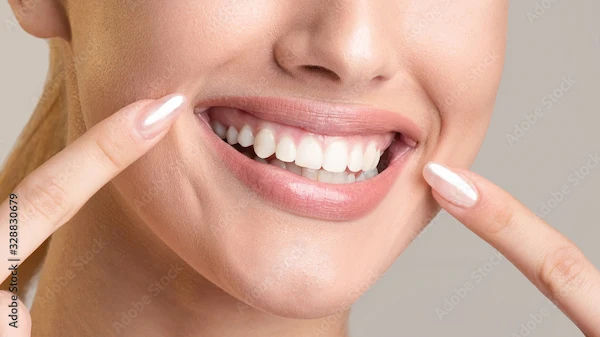What does your tongue indicate about your health?
Know about tongue health, the structure and function of the tongue. Explore how tongue indicates our health status, suggestions for maintaining a healthy tongue, Details of tongue disorder and its preventive measures.

Written by Dr.Sonia Bhatt
Last updated on 3rd Jul, 2025

Much before the evolution of modern medicine, healthcare practitioners treated patients simply by listening and looking at them. Their main mode of detection was observing the tongue. Tongue is still considered relevant as a health indicator. Our tongue health reflects our physical well-being.
Tongue: Structure and function
The tongue is the muscular organ in our mouth that helps in activities like chewing, speaking, licking, tasting and breathing. Anchored inside the mouth by a web of strong tissues, our tongue is made up of muscles and covered with a moist, pink layer of tissues called mucosa. The uppermost layer of tongue is made of papillae which gives it a structure. Also the tongue consists of numerous taste buds for our taste sensations.
How does the tongue work?
The important tongue functions are- mastication (helps in chewing of food), deglutition (helps in swallowing of food), speech (helps in speech facilitation), secretion (the secretion of mucous and serous fluid helps in keep the mouth wet and moist). Apart from these functions, another vital function of the tongue is performed with the help of its taste buds. The cluster of nerve cells present in the taste buds transmits sensory messages to the brain which sends taste signals taste signals for different taste sensations. The five basic tastes that stimulate our taste buds are- sweet, salt, bitter, sour and savoury.
Diseased tongue indicators
The tongue can predict a lot about our healthy well-being. There are specific symptoms that the tongue reflects for the underlying conditions:
Change in taste- There might be a change in taste or total loss of taste caused by certain infections, nerve issues, or side effects of the medication.
Change in colour- The colour of a healthy tongue is generally pale pink or reddish pink. A colour change might be an early sign of diseases like vitamin deficiencies and certain infections.
Tongue with white patches may indicate the presence of lichen planus, thrush or similar conditions
A tongue with red or purple colour can indicate a symptom of vitamin deficiency, scarlet fever or Kawasaki disease
A black tongue, commonly known as black hairy tongue indicates the deposition of bacteria, food and other particles on the tongue’s papillae.
Bacterial formation or smoking often changes the colour of the tongue to yellow. This might be a symptom of psoriasis or jaundice in some individuals.
Change in size- A person suffering from allergies, digestive differences, diabetes issues or other conditions like allergies might feel a swollen or enlarged tongue.
Difference in texture- The normal texture has a rough surface as it is covered with tiny bumps called papillae. If a person feels a smooth tongue he/she might suffer from atrophic glossitis. In this condition, the papillae go missing owing to bacterial or fungal infection.
Numb Tongue- The numbness in the tongue might be a symptom of an allergic reaction to food, certain autoimmune disorders like lupus, multiple sclerosis, nerve damage post dental treatment or tongue piercing or deficiency in vitamins, minerals, iron, zinc, phosphorus or calcium.
Sore or bumpy tongue- Tongue soreness is the outcome of minor infections or irritations. Smoking and poorly fitted dentures also cause a sore or bumpy tongue. However, a painful tongue for a prolonged period can be an early symptom of oral cancer.
Geographic tongue- It is an inflammatory but harmless condition which affects the surface of the tongue. In this condition, the papillae go missing forming patches that look like a geographic map. The patches are generally red and smooth with slightly raised borders and might be sensitive to foods containing spices, salt and even sugar.
Features of a healthy tongue
It is essential to take care of the tongue’s health and keep a check for any changes on a regular basis. A healthy tongue should be round and symmetrical in shape. It should be pink in color, slightly rough on the surface. The shade of the colour may vary slightly depending on the region where the person lives. The texture should have tiny clear bumps called papillae.
Clinical findings in tongue-related issues
Medical guidance is suggested if an individual experiences larger than normal sores. Any persistent issue related to mild or severe tongue pain, difficulty in eating, speech issue exceeding must seek an expert medical consultation and follow the recommendation.
The doctor will meticulously examine the tongue and relate with underlying conditions if required.
Examination is done right from its origin to the tip as a whole. The functioning is checked and the surface is scrutinized as well.
The specialist might have a questionnaire which includes the duration and kind of pain, taste sensations, associated symptoms along with history of substance abuse and difficulty in movement of the tongue.
Medical tests related to tongue- Generally, doctors recommend an overall health check-up and identify the disorder through a Complete blood count test.
Considering the criticality, a tongue biopsy may be suggested.
For certain conditions, indirect pharyngoscopy and laryngoscopy is carried out.
In rare cases, if the patient suffers from venolymphatic malformation on the tongue, an imaging test or genetic test is recommended for confirmation.
Managing tongue disorders
The management of tongue disorder depends on the cause and severity of the symptoms.
The initial treatment includes first aid where the tongue is provided with basic medical care if there is a burning sensation. The patient might have to go through tests and examinations to decipher the cause.
Speech therapy is recommended to many suffering from nerve damage affecting the tongue.
In certain cases, antibiotics are recommended for fungal and bacterial infections.
Issues related to oral hygiene require a thorough check up by the dentist for detection of the underlying infection.
Home Remedies - Practicing good dental hygiene can prevent tongue and dental problems. One must see a dentist at regular intervals for routine check-up and cleanings.
Risky activities like smoking, chewing betelnuts, alcohol or chewing tobacco should be avoided to reduce the risk of ulcer and oral cancer.
Home remedies like rinsing with warm salt water, adapting to a bland diet, and icing can provide relief if the person is suffering from tongue soreness.
Maintaining a healthy tongue
Oral hygiene is the gateway to a healthy physical being. Like exercise and good nutrition, brushing and flossing are essential to oral health. It is very important to clean our tongue and keep it healthy. Brushing teeth twice a day is essential for maintaining good oral hygiene. Rinsing with clear water with a proper swish and rinse drains out the leftover dwelling bacteria post-cleaning. A tongue scraper helps in mucus removal from the tongue’s surface. This avoids bacterial or fungal infection. However, one should be careful while using the scraper, as too much pressure during scrapping might damage the papillae and result in sore tongue. Drinking adequate water regularly is essential for the proper functioning of the body. It helps mobilize the food particles from the tongue towards the digestive system.
Consult Top Otolaryngologist
Dietary recommendation for a healthy tongue
The tongue is a muscle. A healthy diet is crucial for maintaining the strength of the tongue. Foods with anti-microbial properties, like chopped onions, garlic, ginger, and coconuts, are suggested as they help fight the bacteria residing on the tongue. Iron-rich food, calcium, sea food and poultry should also be added to the diet to boost tongue health. Foods involving chewing are beneficial in stimulating the flow of saliva and reducing food retention in the mouth.
Conclusion
Taking care of our tongue's health is just as important as caring for our body. There are several reasons that might create inconvenience to the tongue. Some might be critical, some might not. Talking and seeking advice from a healthcare specialist for any unusual symptoms is essential for the correct diagnosis of the underlying condition. Instead of stressing over changes in the tongue, scheduling a physical examination visit with the health care provider is the first step towards awareness. A well-maintained tongue ensures fresh breath and indicates good oral health which is a major indicator of a healthy body.
Consult Top Otolaryngologist
Consult Top Otolaryngologist

Dr. Sanjna Nayar
Dentist
33 Years • BDS,MDS-Prosthodontics & Implantology, PhD - Dental Implantology, Master in Prosthetic Section Implants ICOI USA, Fellow in Implantology ICOI USA
Delhi
Apollo Hospitals Indraprastha, Delhi
(25+ Patients)

Dr. Revathi Miglani
Dentist
19 Years • MDS, DNB
Chennai
Apollo Hospitals Greams Road, Chennai

Dr. Chirag D Shah
Dentist
17 Years • BDS
Ahmedabad
Apollo Hospitals Gandhinagar, Ahmedabad

Dr. Vikrant Choudhary
Dentist
27 Years • MDS, PERIODONTIST
Delhi
Apollo Hospitals Indraprastha, Delhi

Dr P Manamalli
Dentist
20 Years • BDS, MBA, FICD, Fellowship in LASER Dentistry
Chennai
Apollo Hospitals Greams Road, Chennai
Consult Top Otolaryngologist

Dr. Sanjna Nayar
Dentist
33 Years • BDS,MDS-Prosthodontics & Implantology, PhD - Dental Implantology, Master in Prosthetic Section Implants ICOI USA, Fellow in Implantology ICOI USA
Delhi
Apollo Hospitals Indraprastha, Delhi
(25+ Patients)

Dr. Revathi Miglani
Dentist
19 Years • MDS, DNB
Chennai
Apollo Hospitals Greams Road, Chennai

Dr. Chirag D Shah
Dentist
17 Years • BDS
Ahmedabad
Apollo Hospitals Gandhinagar, Ahmedabad

Dr. Vikrant Choudhary
Dentist
27 Years • MDS, PERIODONTIST
Delhi
Apollo Hospitals Indraprastha, Delhi

Dr P Manamalli
Dentist
20 Years • BDS, MBA, FICD, Fellowship in LASER Dentistry
Chennai
Apollo Hospitals Greams Road, Chennai

